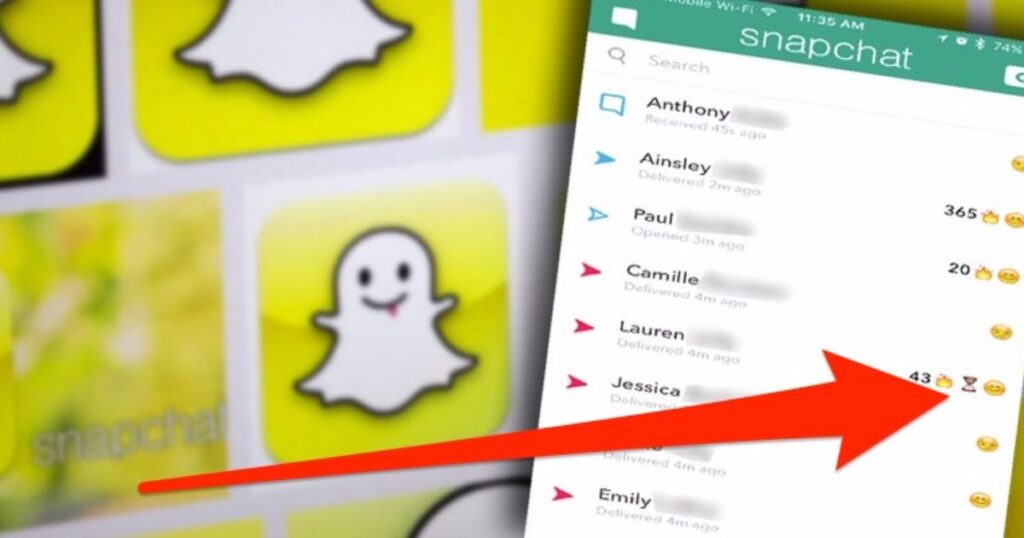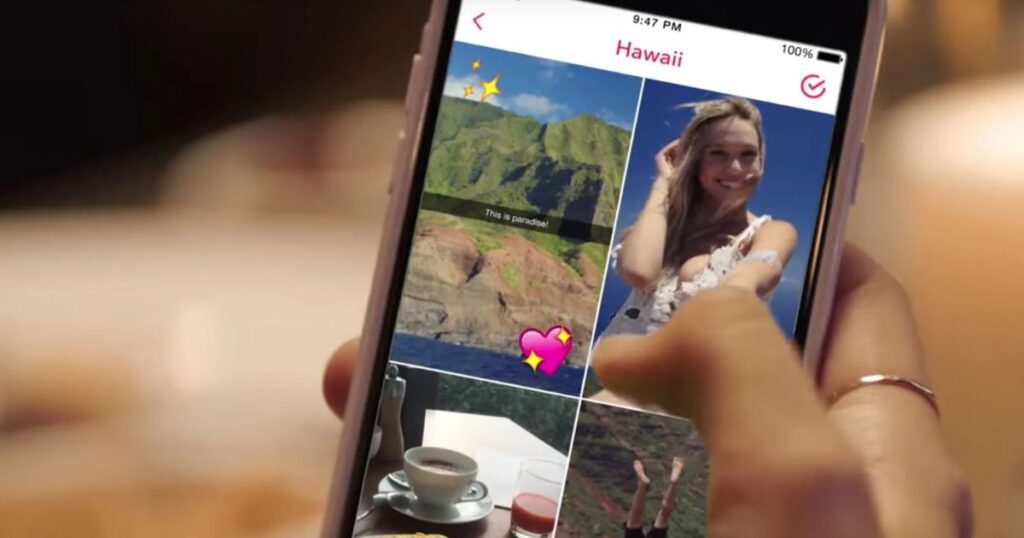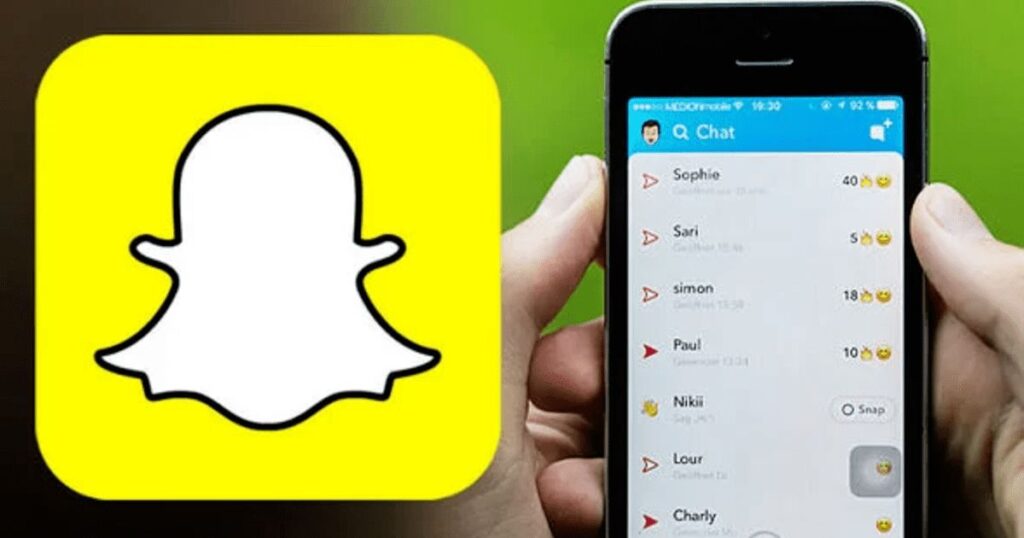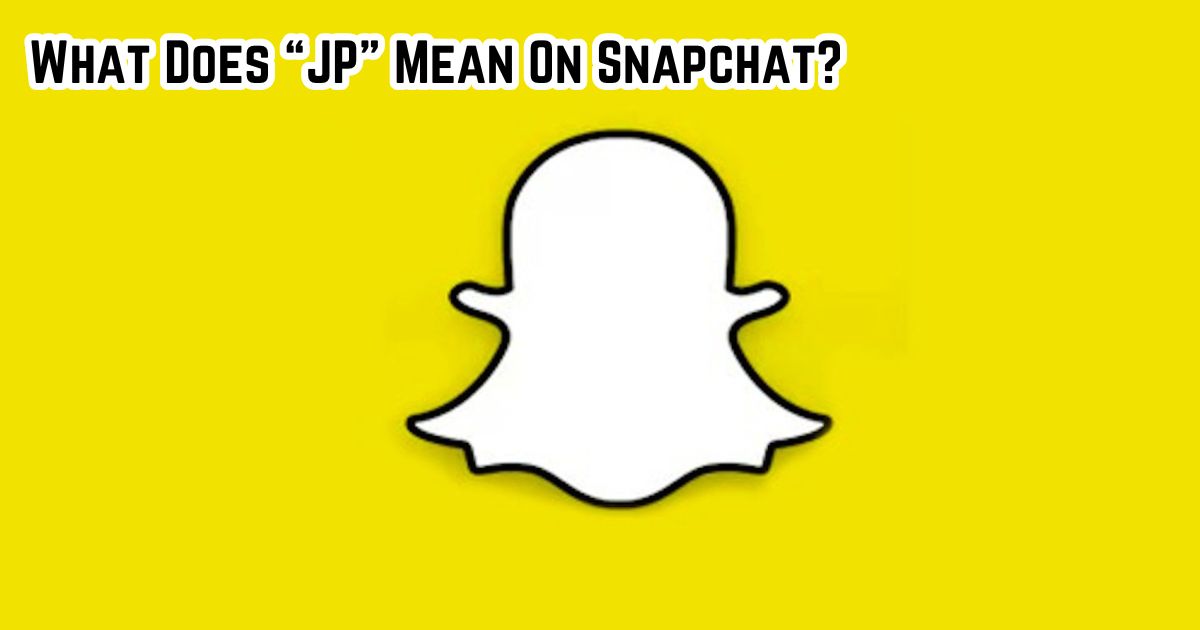“Just playing” is the meaning of the acronym “JP.” Saying “just playing” in reaction to a previous statement or comment is one way a Snapchat user may utilize it. The prior remark or phrase can come off as odd, perplexing, or disagreeable. If it is followed by the letters “JP,” it is a joke.
The Many Definitions of JP on Snapchat

JP can have multiple meanings on Snapchat depending on the context. Here are some of the common ways it is used:
The most common definition of JP is “just playing” When someone sends an odd, shocking, or exaggerated statement, they can follow up by saying JP to indicate they were joking around and didn’t mean it seriously. It’s a way to lighten the mood and clarify intentions. For example, someone might say “I hate you!” followed by “JP JP” to show they were kidding. JP is also used to indicate platonic interest after flirting. For instance, if two friends are flirting playfully but want to establish they are not romantically interested, one might end a flirty exchange with “JP” to confirm just friends, not romantic partners. This can prevent mixed signals.
JP can mean “just posting” when sharing content. If someone shares a silly video, meme, or photo, they might caption it “JP JP” to convey they are just posting or sharing for fun, not to make a serious statement. This clarifies the tone as lighthearted. JP is also sometimes used in another context on Snapchat – to indicate “Juicy Points.” Some users tally up “points” for provocative, sensational, or “juicy” content. Tagging a snap with JP indicates it contains something potentially attention-grabbing or dramatic.
Who Uses JP on Snapchat? Understanding The Core Demographic

JP is widely used among Snapchat’s core demographic of younger users, primarily Gen Z. Here is some background on who uses JP on Snapchat and why it resonates with them:
Generation Z (born between 1997-2012) makes up the bulk of Snapchat’s users. They are true digital natives who feel comfortable communicating through ephemeral messaging apps with creative features like lenses and filters. JP fits well with Gen Z’s informal, playful communication style on social media. It allows them to clarify intent, avoid misunderstandings, and set a casual, fun tone. They embrace Snapchat as a platform for goofing around and being your authentic self.
Additionally, JP enables Gen Z users to balance intimacy and distance. They feel connected sharing snippets of their lives but also want control over their personal information. JP gives them space to share silly thoughts or flirty banter without crossing lines. If it goes too far, they can brush it off as “just playing. Gen Z also has an ironic sense of humor and appreciation for the absurd. JP allows them to say something ridiculous or nonsensical and then wink and say they’re joking. The deadpan delivery followed by “just playing” appeals to their comedic tastes.
Tips for Using “JP” Respectfully in Your Conversations

While JP can add levity and clarity to conversations on Snapchat, it is important to use it thoughtfully and appropriately. Here are some tips:
- Don’t assume JP automatically excuses harmful or offensive comments. While it indicates you aren’t serious, think carefully about how your words might still impact someone.
- Be cautious using JP frequently, as it could come across as dismissive or insincere, like you lack conviction behind your statements.
- Avoid overusing JP specifically to brush off flirtatious comments or advances. It could create uncomfortable ambiguity about your intentions.
- Don’t use JP to disguise bullying, discrimination, or cruelty as “just joking.” Make sure your intent is not to humiliate or harm.
- Consider your relationship and level of trust with someone before using JP liberally in sensitive conversations. The ambiguity might confuse or upset those unfamiliar with the term.
- For serious or nuanced discussions, explain yourself clearly rather than defaulting to a vague JP. Add context to reduce misinterpretations.
- JP can become a crutch to avoid accountability. Be thoughtful about when disclaiming “just playing” is appropriate or necessary.
With mindful communication, JP can enrich your Snapchat conversations with humor and understanding. But apply it judiciously to avoid misunderstandings with those who know you less well.
What Does JP Mean on Other Social Platforms?
While JP is widely used on Snapchat, it has also spread as slang across different social media platforms and messaging apps. Here’s how it translates:
TikTok
On TikTok JP often carries the same meaning as Snapchat – “just playing” or “just joking.” Users comment JP under prank or ironic videos to drive home that their humor is not serious. TikTok’s trends embrace over-the-top skits and absurdist jokes, so JP fits right in.
On Instagram, JP frequently appears in Stories replies, where people can indicate joking, flirting, sarcasm or sharing “juicy points.” But since Instagram lacks Snapchat’s ephemerality, JP might also mean “just posting” – casually sharing a photo without deeper meaning.
JP pops up in Facebook comments when friends want to backtrack a political argument or an awkward overshare. Adding JP softens the tone and implies they spoke hastily but don’t intend real offense or conflict. The lack of tonal indicators on Facebook makes these clarifications necessary.
On WhatsApp, JP often carries over from Snapchat as well, with friends messaging “just playing!” to walk back something that landed oddly in a group chat. The intimate small group dynamics make lighthearted JP useful for saving face.
Even on professional sites like LinkedIn, JP may appear when someone wants to balance humor and seriousness while networking. After a witty aside, commenting JP prevents the joke from undermining one’s professionalism.
So while nuances vary by platform, JP maintains its spirit as a flexible clarification of intent across social media, adding lightness and context to conversations.
FAQ’s
What does JP stand for on Snapchat and how is it commonly used?
JP stands for “just playing” on Snapchat. It is commonly used after an odd, exaggerated, or shocking statement to indicate the user was just joking around and not serious.
Which demographic primarily uses JP on Snapchat, and why do they appreciate it?
The core demographic that uses JP on Snapchat is Generation Z, who appreciate it for adding casual, playful tone to conversations and allowing intimancy balanced with ambiguity.
What is the importance of using JP thoughtfully, and what should be avoided when using it?
When using JP, it’s important to apply it thoughtfully and avoid letting it excuse hurtful comments or insincerity. The vagueness can be confusing without proper context.
In addition to Snapchat, where has JP as slang spread, and how does it maintain its meaning on other platforms?
While popular on Snapchat, JP has spread as slang to other platforms like TikTok and Instagram, maintaining its flexible meaning to clarify intent.
Conclusion
In summary, “JP” is a widely used acronym on Snapchat that typically means “just playing.” It signals that a previous message or comment was intended lightheartedly, as a joke, or not to be taken seriously. This allows Snapchatters to set a casual, fun tone, test boundaries, and avoid misunderstandings in their ephemeral conversations. When used thoughtfully, JP can enrich interactions. But it also requires caution to prevent coming across as dismissive or insincere. As Snapchat’s youthful lingo permeates the internet, expect to see “JP” continue spreading as a communication clarifier on social platforms. Just don’t forget the importance of context in deciding what’s truly “just playing.”











